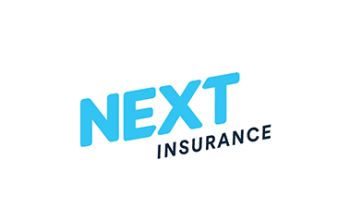

In May 2018, Next became a licensed insurance carrier, which allowed them to write policies independently, having more freedom over the underwriting process, setting of prices, and adjustment of policies. In the first 2 years, Next’s policies were underwritten by Munich Re, one of the company’s strategic investors. 95 percent of its initial customers were converting without ever talking to a human agent, proving early in the journey that tech-enabled insurance can be a viable business. Next began offering coverage for personal trainers and photographers, but quickly added policies for some eight more professions. The website was launched a few months later in December 2016. The founding team’s prior success allowed them to raise a first round of seed funding in March 2016, which granted them a $13 million head start. Slow incumbents, lack of transparency, and high complexity are a perfect breeding ground for any startup trying to disrupt an industry. Even after an extensive research and purchasing process, some of the policies were still lagging some essential coverage.ĭue to the complexity of the small business insurance industry, even the largest insurance companies had less than 10 percent market share.

After all, a consultant is at a much lower risk of liability than, let’s say, a sports coach.Īt the time, small business owners had to sift through a variety of comparison websites to find a suitable offering. Oftentimes, policy owners suffered from lengthy claims processes, lack of customization and transparency, as well as hidden fees.įurthermore, the small business owner insurance market often lacked any dedicated offerings that accounted for the specifications of their job. They were all able to quickly capture market shares in their respective industries due to the inability of incumbents to adapt to a digital world. Prominent examples include the previously mentioned Root Insurance, Lemonade Insurance (which went public in 2020), or Hippo Insurance. Next was launched during a time when a plethora of other InsurTech businesses got going. The team, as typical with many tech acquisitions, stayed on for another 2 years to ensure a smooth transition.Īfter their contractual obligations with Intuit ended, the team decided to pursue their next entrepreneurial play, which ultimately culminated in the creation of Next Insurance.
Next insurance software#
That endeavor ended up becoming Check Inc., a payment app that allowed its users to track and settle their bills.Ĭheck was acquired in 2014 by software giant Intuit (which also recently acquired C r edit Karma) for $360 million in cash and other considerations.Īt the time, the app was used by more than 10 million people with annual revenues of $20 million. Goldstein, Huri, and Tapiro stayed on at HP for another two years when they finally decided to start their first business. Its products were then sold under the HP umbrella and branded as their own. Mercury was acquired by HP for $4.5 billion in 2006. The trio met at Mercury, a former Israeli company that developed software for application management, application delivery, change management, and more. The founders, originally from Israel, have essentially spent their whole career working alongside each other. Next Insurance, headquartered in Palo Alto, California, was founded in 2016 by Guy Goldstein (CEO), Alon Huri (CTO), and Nissim Tapiro. Next Insurance, as opposed to other InsurTech’s like Root, has stirred out of developing a mobile application. In case of damage, claims can be filed online via the company’s website.

The firm runs its own call center that is available to answer customer queries throughout the week. Since Next Insurance does not operate any physical branches, all customer support is carried out online. Its policies are uniquely tailored to the particular needs of that business.Īll they have to do is to fill out the company’s questionnaire by entering a few data points about themselves, such as their occupation, the state of residency, as well as the type and number of policies they would like to purchase.

As a tech-enabled insurance provider, Next Insurance is able to provide owners with instant quotation. If they decide to bundle policies, they’re eligible to receive a discount of 10 percent on their premiums. Example businesses and professions eligible for coverage include contractors, consultants, sports coaches, and 1,000 more. Business owners have the option to purchase 1 or as many insurance policies as they like. The company has 8 policies in its product arsenal, including: Next Insurance is an InsurTech that offers various insurance policies aimed at (small) business owners.


 0 kommentar(er)
0 kommentar(er)
